Have you ever wondered why your heart races when you're stressed or why you feel a surge of energy in a stressful situation?
The answer lies in a hormone produced by your adrenal glands - cortisol. In this blog, we'll delve into the intricacies of cortisol, often called the 'stress hormone'.
We'll explore its functions, how it responds to stress, and the implications of high and low cortisol levels. We'll also discuss the factors influencing cortisol production, stress, circadian rhythm, and mental health.
What is Cortisol and its Function?
Cortisol, often called the 'stress hormone', is a steroid hormone produced by the adrenal glands. Its primary function is to aid the body in responding to stress. However, it's not just about stress. Cortisol is crucial in various bodily functions, including metabolism regulation and immune response.
The production of cortisol is a complex process involving two key parts of the nervous system: the pituitary gland and the adrenal gland. The pituitary gland, located at the base of the brain, releases a hormone that signals the adrenal glands to produce cortisol.
When we encounter a stressful situation, our nervous system triggers the adrenal glands to release cortisol. This hormone then performs various functions to help the body cope with the stressor. It increases glucose in the bloodstream, enhances the brain's use of glucose, and facilitates the availability of substances that repair tissues.
However, cortisol isn't just about responding to stress. It's also essential for maintaining overall health. It helps regulate blood pressure, reduces inflammation, and contributes to the functioning of the immune system.
High cortisol levels, often associated with chronic stress, can lead to a variety of health issues. These include weight gain, high blood pressure, and a weakened immune system, which is why many people are interested in lowering their cortisol levels.
On the other hand, low cortisol levels can also pose problems. Symptoms of low cortisol, or adrenal insufficiency, can range from fatigue and weight loss to severe abdominal pain.
It's important to note that cortisol levels can fluctuate throughout the day, typically peaking in the morning and gradually declining throughout the day. This is a normal part of the body's response to stress.
Factors that Influence Cortisol Levels
Stress is a significant player in cortisol regulation. When we encounter a stressful situation, our bodies respond by releasing a surge of hormones, including cortisol. This is part of our natural 'fight or flight' response, designed to help us react quickly to perceived threats.
Chronic stress can lead to consistently high cortisol levels. This is because the body doesn't distinguish between physical threats and emotional stressors, so it continues to release cortisol as long as the stress persists.
The connection between stress and high levels of cortisol is a vicious cycle. High cortisol can exacerbate feelings of stress and anxiety, which in turn prompts the body to produce even more cortisol.
The circadian rhythm, our body's internal clock, plays a pivotal role in cortisol production. This biological process, which operates on a 24-hour cycle, influences various physiological functions, including hormone release, sleep-wake cycles, and body temperature.
Cortisol levels fluctuate throughout the day in response to this rhythm. Typically, cortisol levels peak in the early morning, around 7-8 AM, and gradually decrease throughout the day, reaching their lowest point at midnight. This pattern allows us to respond to stress effectively during the day and rest at night.
Disruptions to the circadian rhythm, such as shift work or jet lag, can lead to high cortisol levels. This is because the body's normal rhythm is thrown off balance, causing the adrenal glands to produce more cortisol than necessary.
The connection between cortisol levels and mental health is complex and deeply intertwined with our body's response to stress. High cortisol levels are often associated with mental health disorders such as depression, anxiety, and chronic stress. This is because our bodies produce more cortisol in stressful situations as part of the fight-or-flight response.
However, when this response is triggered too often, it can lead to a state of chronic stress. This is where the connection with cortisol comes into play. Chronic stress can cause our bodies to continually produce high levels of cortisol, which can have a detrimental effect on our mental health.
The relationship between cortisol and mental health is a two-way street. Not only can high cortisol levels contribute to mental health issues, but mental health disorders can also lead to elevated cortisol levels. For instance, individuals suffering from depression or anxiety often exhibit high cortisol levels.
Supplements to Lower Cortisol Levels
Elevated cortisol levels can lead to various health issues, making it crucial to keep them in check. One way to reduce cortisol is through dietary supplements. Remember, while supplements can be beneficial, they should be used as part of a comprehensive approach to managing cortisol levels, which includes a balanced diet, regular exercise, and adequate sleep. Always consult with a healthcare professional before starting any new supplement regimen.
Top Recommended Supplements
Ashwagandha
Ashwagandha, often referred to as the “king of herbs” in Ayurvedic medicine, is renowned for its adaptogenic properties, which help the body cope with stress. This powerful herb has been used for centuries to promote balance and resilience, making it a popular choice for managing stress and anxiety.
Ashwagandha works by regulating cortisol levels, the hormone released in response to stress. By helping to normalise these levels, Ashwagandha supports a more balanced stress response and contributes to a calmer, more stable mood. Its adaptogenic qualities also enhance the body’s ability to handle physical and mental stress, making it an effective tool for improving overall well-being.
In addition to stress reduction, Ashwagandha may offer benefits such as improved energy levels, better sleep quality, and enhanced cognitive function. Whether you're dealing with daily pressures or seeking to enhance your overall resilience, incorporating Ashwagandha into your routine can help you maintain balance and thrive amidst life's challenges.
Magnesium
Magnesium plays a vital role in regulating cortisol levels, the hormone released during stress. By supporting healthy magnesium levels in your body, you can help manage and lower elevated cortisol, promoting a more balanced stress response.
When stress triggers cortisol production, magnesium helps counteract this by supporting the adrenal glands and balancing neurotransmitter function. Adequate magnesium levels can lead to reduced cortisol production, improved anxiety and mood, and better overall stress management.
Incorporating magnesium into your daily routine can be a powerful step towards mitigating the effects of chronic stress and enhancing your well-being. Consider adding a high-quality magnesium supplement to your regimen and experience the calming benefits that support lower cortisol and a more relaxed state of mind.
L-theanine
L-theanine, a unique form of L-Theanine, is a natural compound renowned for its calming and focus-enhancing properties. Found primarily in tea leaves, L-theanine benefits include its ability to promote relaxation without causing drowsiness, making it an excellent supplement for managing stress and improving mental clarity.
L-theanine works by influencing neurotransmitters in the brain, including serotonin and dopamine, which help regulate mood, focus, and stress responses. It also increases alpha brain waves, associated with a state of relaxed alertness. This combination helps reduce anxiety and enhances cognitive performance, making it easier to stay calm and collected during demanding situations.
Incorporating L-theanine into your daily routine can support a more balanced mood, improve concentration, and aid in stress management. If you're looking for a natural way to enhance your mental clarity and maintain a sense of calm, L-theanine could be the perfect addition to your wellness regimen.
While these supplements can help reduce cortisol, they should be used as part of a balanced lifestyle that includes a healthy diet, regular exercise, and adequate sleep. Always consult with a healthcare professional before starting any new supplement regimen.
Recognising the Signs of High Cortisol Levels
Recognising the signs of high cortisol levels is crucial in managing your overall health. High cortisol levels, often associated with chronic stress, can manifest in various ways. One of the most common signs is a constant feeling of being overwhelmed or wired. This is your body's response to stress, and it's a clear indication that your cortisol levels may be elevated.
Another sign to look out for is persistent fatigue, even after a good night's sleep. High levels of cortisol can disrupt your sleep patterns, leaving you feeling tired and drained. This is because cortisol levels fluctuate throughout the day, typically peaking in the morning and gradually decreasing throughout the day.
Depression, stress, and anxiety are also closely connected with high cortisol levels. If you're experiencing these emotions more frequently or intensely, it could be a sign of high cortisol. It's important to note that everyone's response to stress is different, and what may seem like a stressful situation to one person may not be to another.
If you feel worried about your cortisol levels, do not hesitate to speak to your healthcare provider about a cortisol test.
Final Thoughts on Understanding and Managing Cortisol Levels
Understanding and managing cortisol levels is crucial for maintaining a healthy lifestyle. High cortisol levels, often a result of chronic stress, can lead to numerous health issues, including high blood pressure and blood sugar levels. Conversely, low cortisol levels can also pose health risks.
Natural ways to reduce cortisol levels, such as maintaining a balanced diet, regular exercise, and a consistent sleeping pattern, are highly recommended. However, in some cases, supplements may be necessary to manage high cortisol levels.
Sentro Labs offers supplements designed to effectively support balanced cortisol levels. Elevated cortisol, often triggered by chronic stress, can impact various aspects of health, including mood, sleep, and energy levels. Sentro Labs’ range of supplements targets these issues, helping you manage cortisol and support a healthier stress response.
Our Equilibrium formula features Ashwagandha, Magnesium, and L-theanine—three powerful ingredients known for their stress-reducing properties. Ashwagandha helps regulate cortisol levels, Magnesium supports adrenal health, and L-Theanine promotes relaxation and mental clarity. Together, they work synergistically to balance cortisol and enhance your ability to handle stress.
Order yours today!




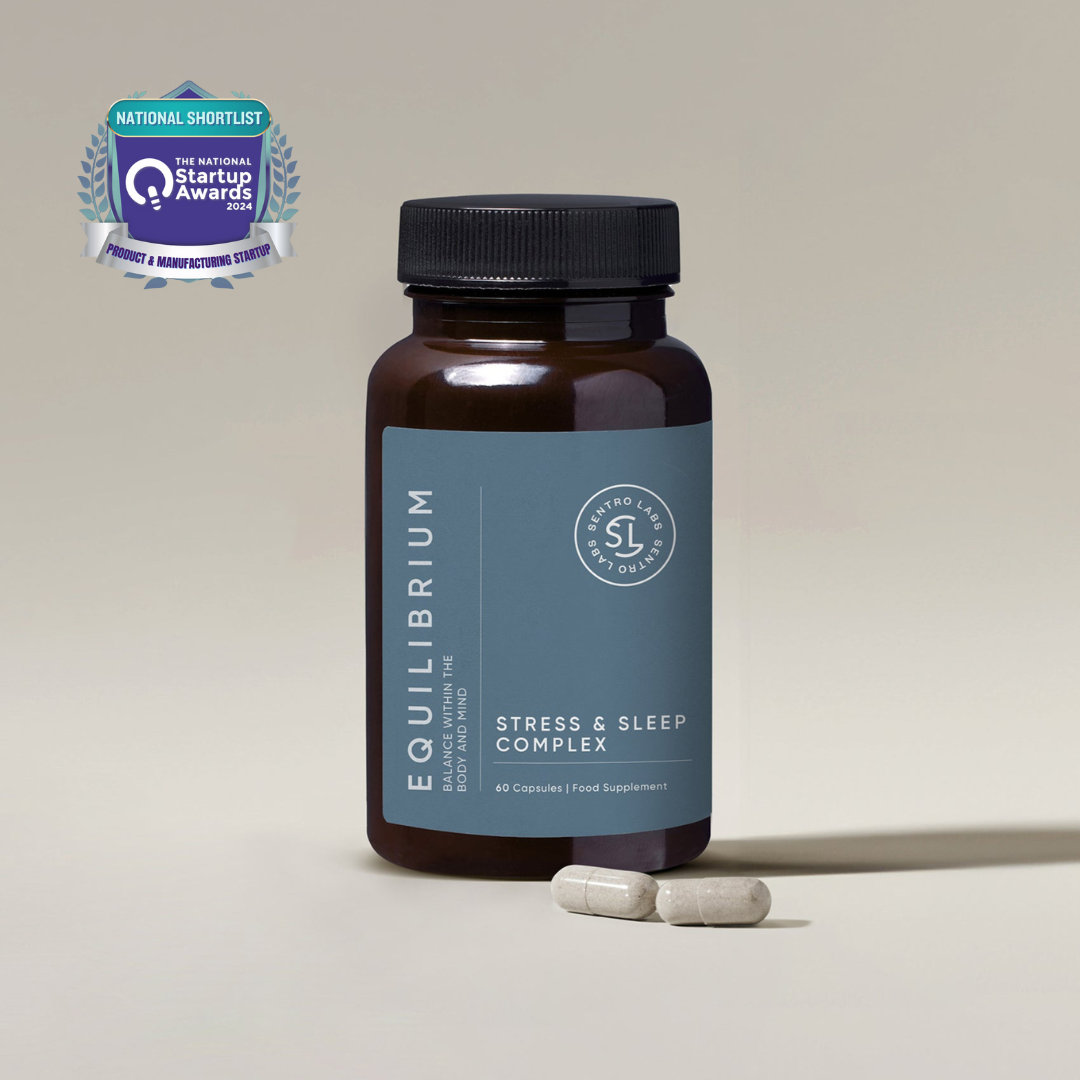


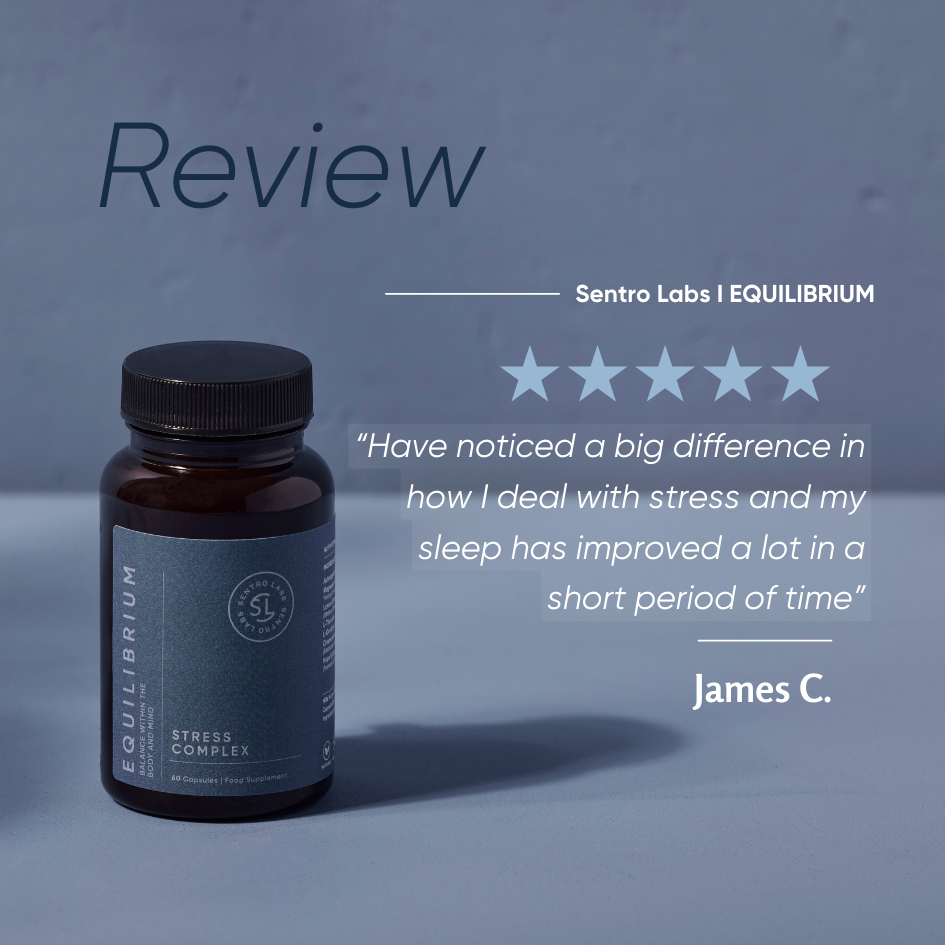
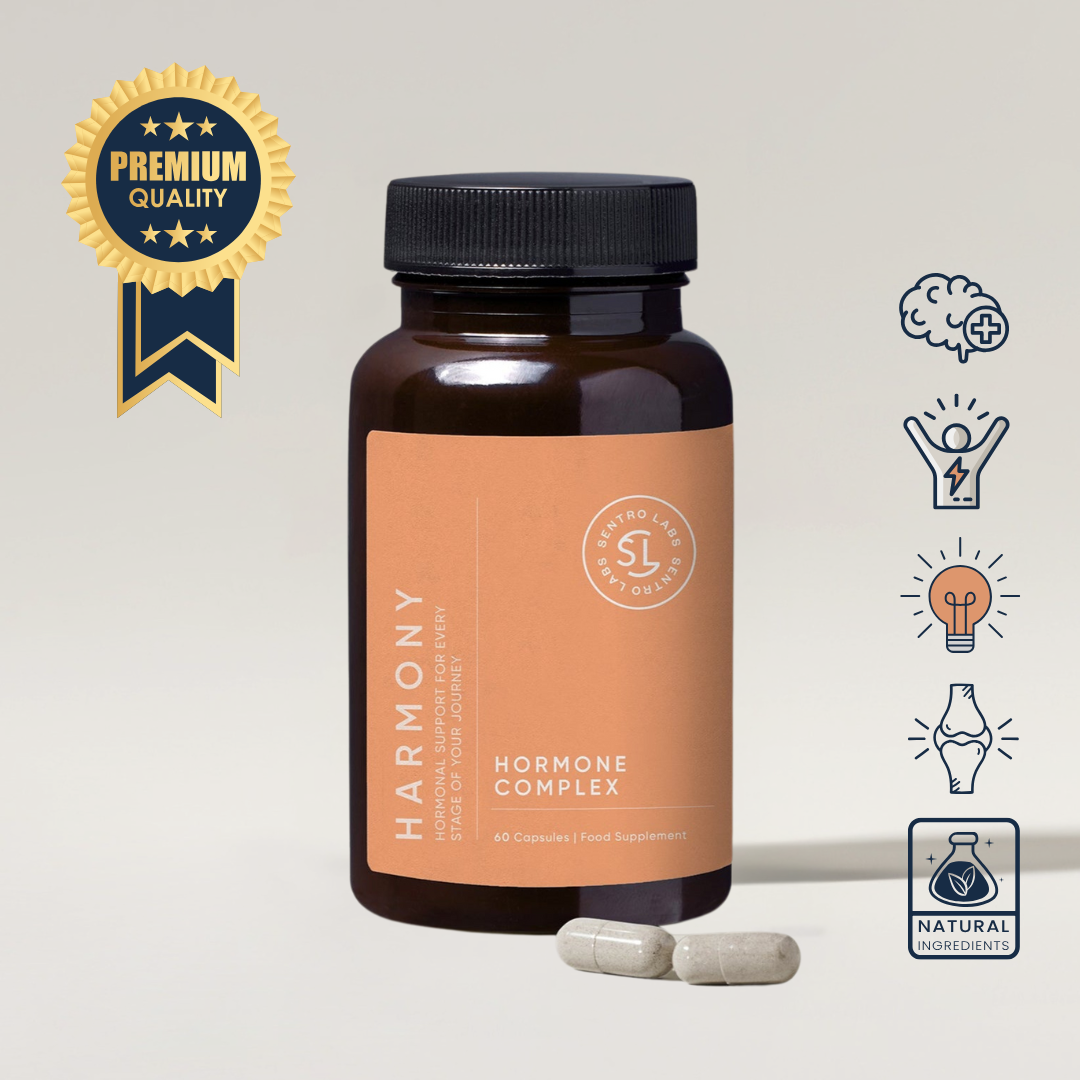
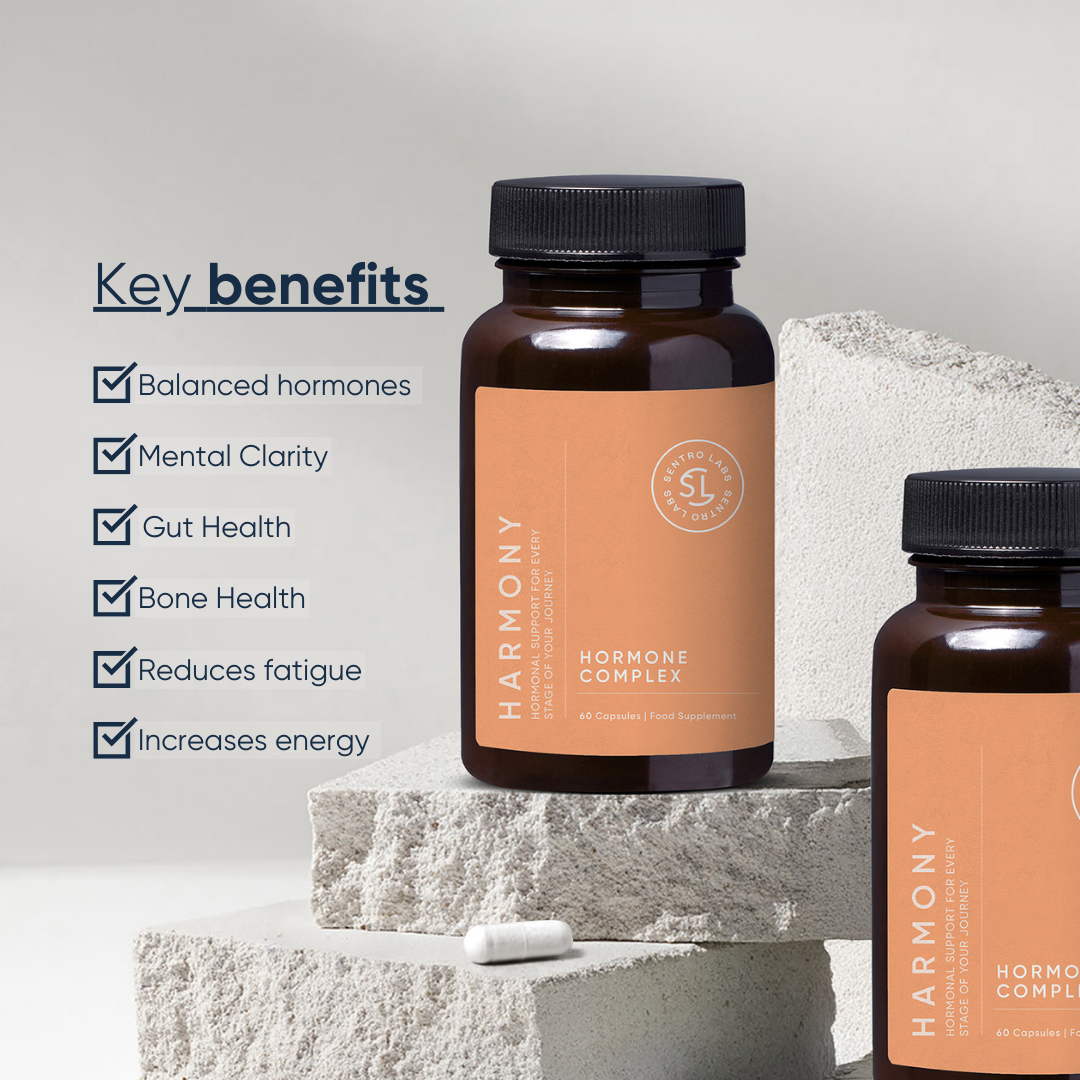

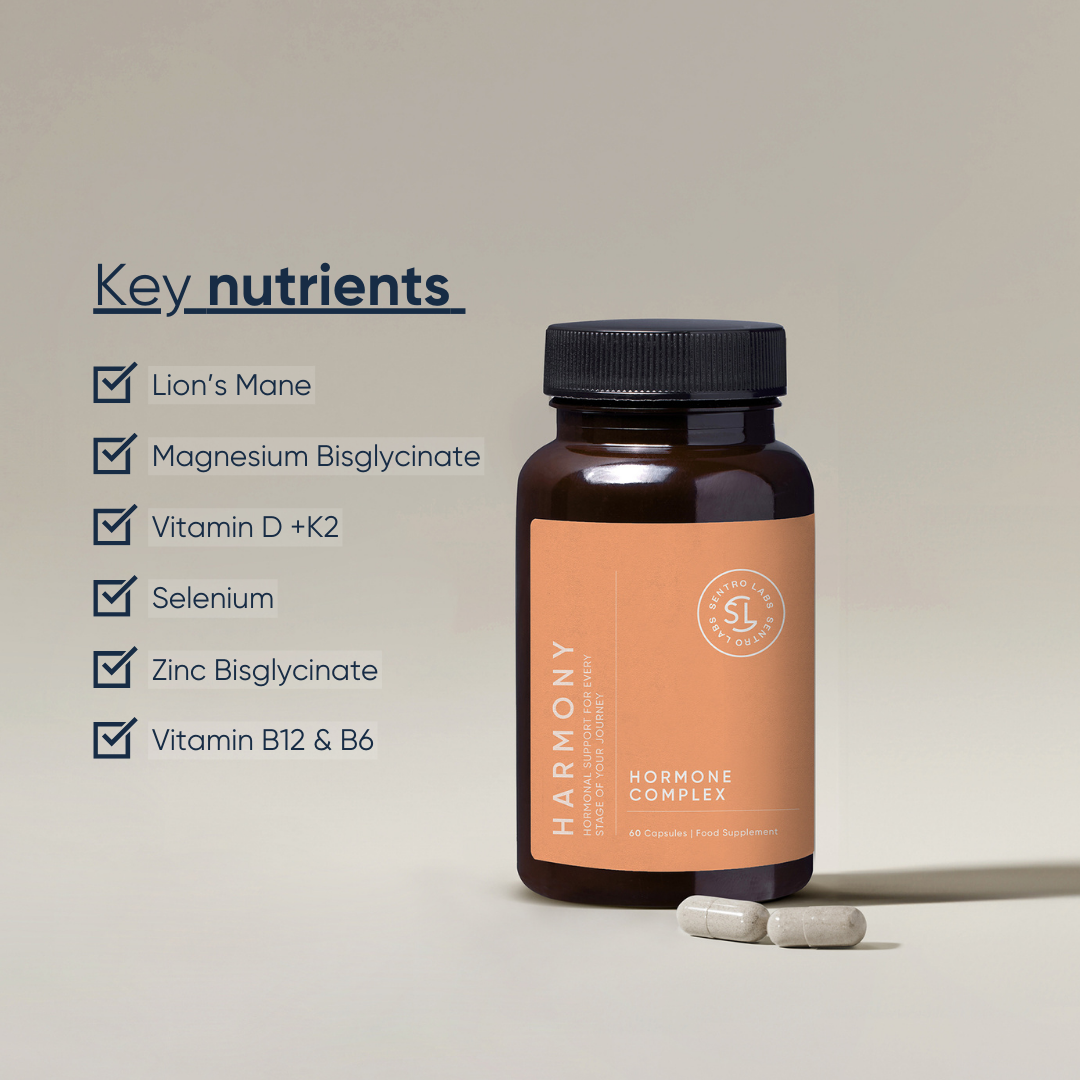
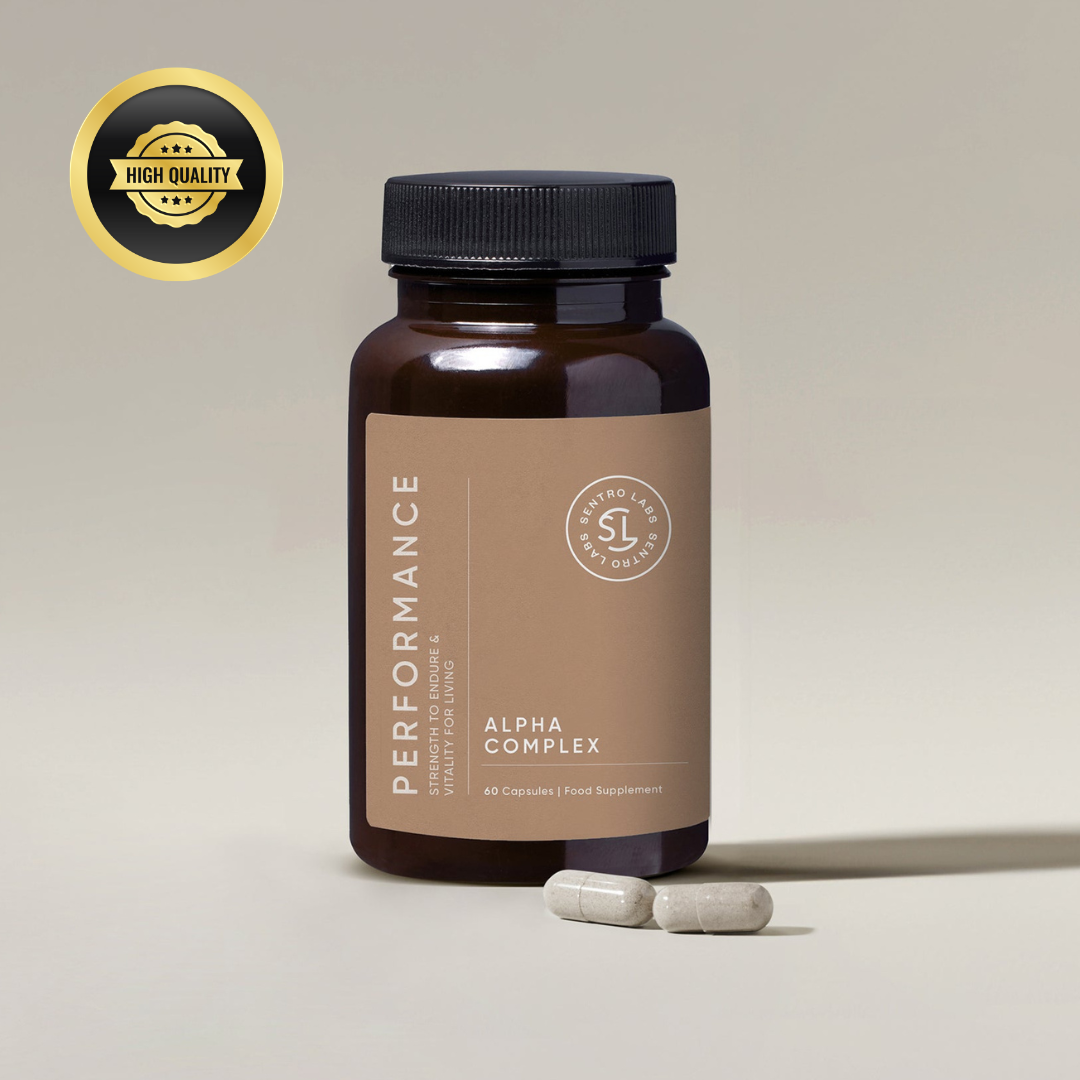
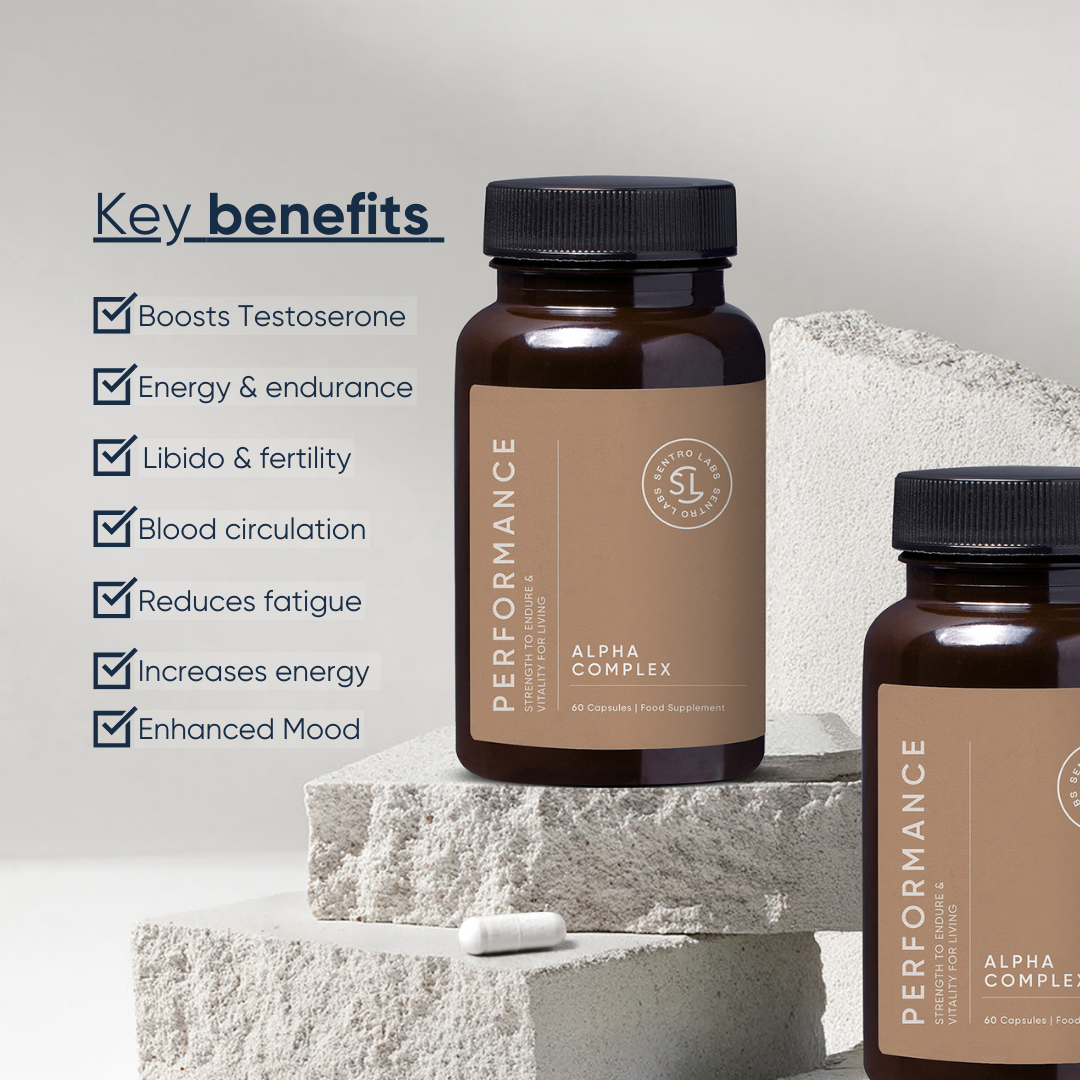
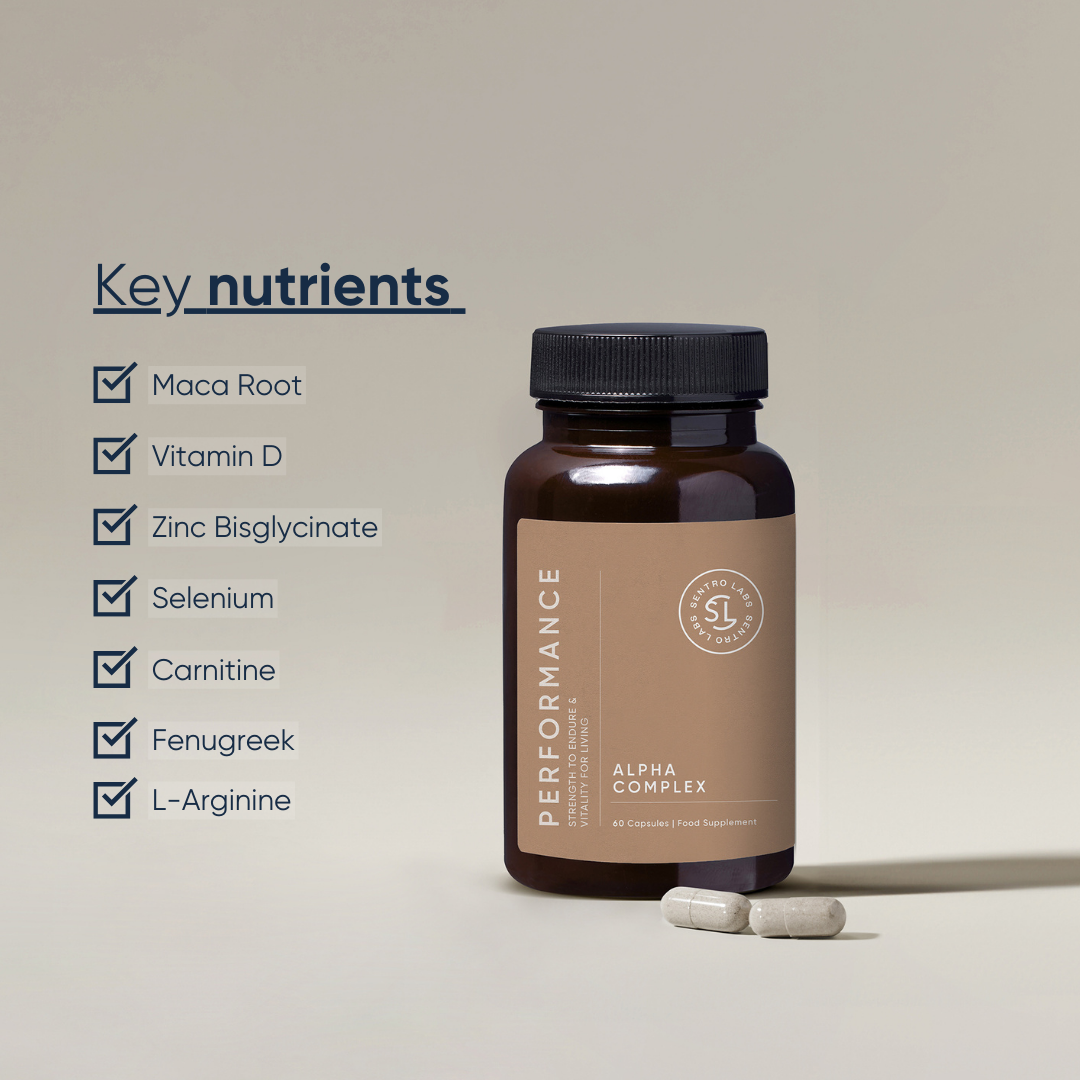
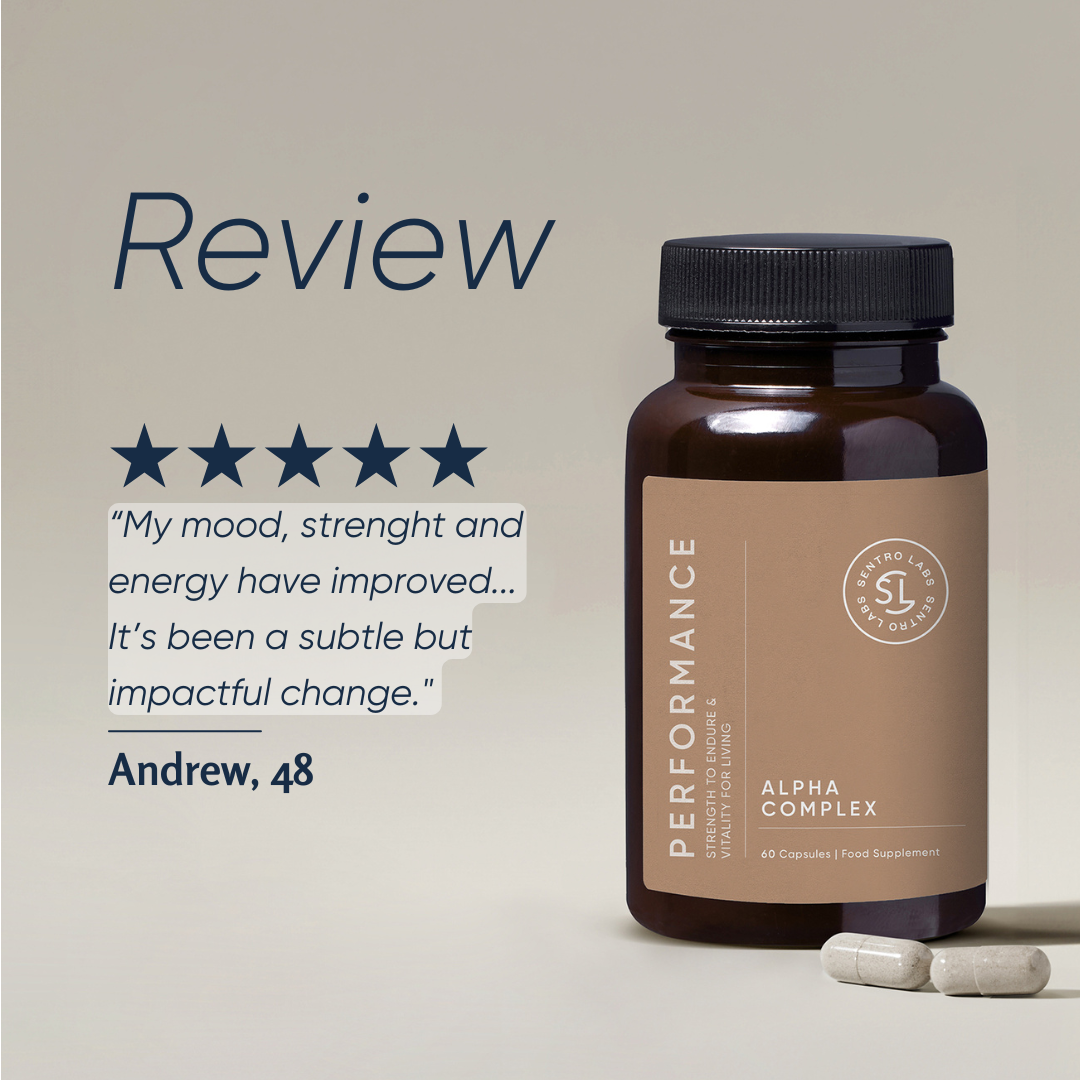

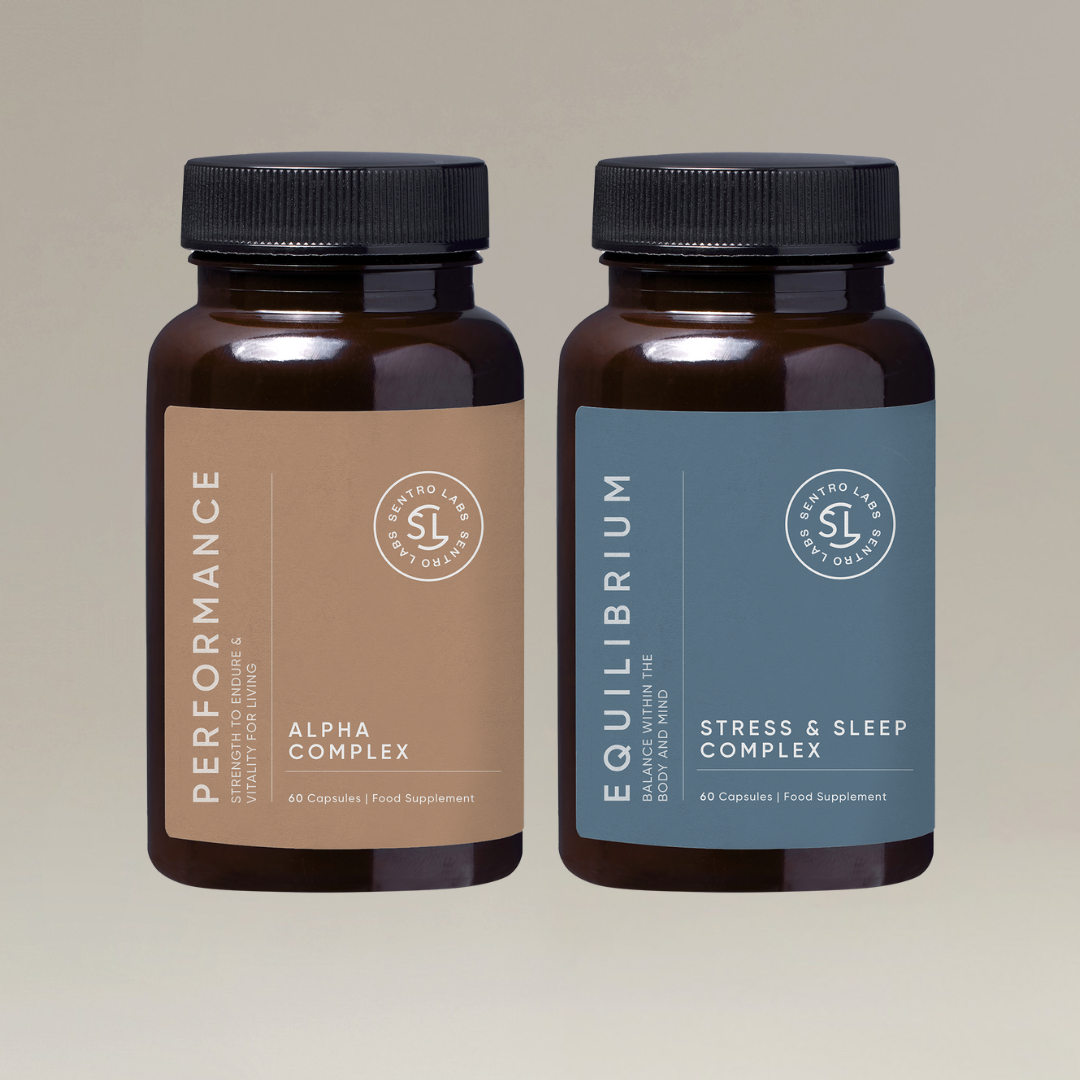
Share:
Magnesium and Anxiety: A Comprehensive Guide
Managing Stress and Cortisol: Effective Strategies and Natural Supplements